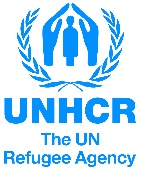Together let’s stop Ebola !

Even though there is a global decrease of new cases in the most affected countries by the Ebola Virus Disease, it is important to maintain a strong prevention effort. In this context, Niger as many other West African countries geared up to prevent the spread of the deadly hemorrhagic fever. The Ministry of health along with the support of UNHCR, UNICEF, WHO and their partners, the Niger and Luxemburg Red Cross, set up an Ebola treatment center on the Lazaret site in Niamey. This center has a minimum capacity of ten beds and is composed of two blocs; one for the suspected cases and one the confirmed cases. An annex for the staff has also been built. The center is fully equipped and operational and has an ambulance ready to go. The Prime Minister of Niger visited the center on the 7th of March to commend the efforts of UNHCR, WHO, UNICEF and their partners. The UNHCR, member of the National Health Committee for Ebola, also carried out an internal sensitization campaign for its staff and persons of concern. Hand sanitizers have been disposed in all UNHCR offices in Niger, including vehicles, and hand washing facilities have been installed in each camp. Also, with the support of its partners in health APBE and IRC, sensitization activities have been carried out in the camps and ZARs.

| PUBLICATION OF WHO “STOP EBOLA” FREE MOBILE APPLICATION |
 | PUBLICATION DE L'APPLICATION MOBILE GRATUITE DE L'OMS “STOP EBOLA” | WHO launch a free mobile application «STOP EBOLA». This application developed with the support of WHO partners aims at contributing to Public Awareness Efforts and strengthening Surveillance through reporting of suspected Ebola cases. |
 |
L'OMS lance l'application gratuite « STOP EBOLA ». Cette application a été développée avec l’appui des partenaires de l’OMS pour contribuer à la sensibilisation du public et au renforcement de la surveillance communautaire par le rapportage de cas suspects de virus d'Ebola. Les caractéristiques principales de l'application (qui est disponible en anglais et en Français à travers le bouton ‘Configuration’) incluent : • Des mesures de prévention contre le virus. • Témoignages de survivants de l'Ebola. • Questions et réponses sur le virus. • Comment reconnaître Ebola ? • Rapportage d'un cas suspect du virus Ebola qui déclenchera une investigation. • Enquête de sensibilisation sur la maladie. • Dernières nouvelles sur le virus Ebola. • Contacts OMS dans les pays. L’application est disponible pour téléchargement et installation directement à partir de votre smartphone androïde par le lien : https://play.google.com/store/apps/details?id=com.stopebolawhoofficial. La publication de cette application sur Apple Store et Windows Store suivra bientôt et nous vous tiendrons informé en temps opportun. |
|---|
| Faced with the risk of the Ebola outbreak, UNHCR partners with government efforts and reinforce measures on the field |
 | Face au risque de l’épidémie Ebola, l’UNHCR s’associe aux efforts du gouvernement et renforce son dispositif sur le terrain | The Niger Ministry of Public Health has set up a mechanism for the prevention and management of the outbreak of the Ebola virus disease. The mechanism includes the creation of a national Ad Hoc management committee for the epidemic, with UNHCR as a member, and the elaboration of a contingency plan for the prevention of the virus in Niger. To reduce the risk of stigmatization against refugees and the displaced persons (especially those from Nigeria hit by the epidemic), the Ministry of Public Health has adopted a policy of total inclusion of these populations in its approach. In this regard, special attention is paid to the management of information, communication and advocacy. UNHCR has informed the ministry of its full availability to support its efforts in the three regions hosting a large number of refugees and forcibly displaced (Tillabéry, Tahoua and Diffa). This support will be made first through the provision of tents for the isolation centers and through implementation of communication / outreach activities. Meanwhile, UNHCR is currently conducting missions to the three camps and the two refugees hosting areas to establish health and outbreak management committees. During these missions, UNHCR and partner field teams will be updated on the latest developments of the epidemic, on the directives of the Ministry of Health and of the WHO, as well as on the international health regulations. |
 |
Le ministère de la santé publique du Niger vient de mettre en place un dispositif de prévention et de gestion de l’épidémie de la maladie à virus Ébola. Ce dispositif comprend la création d’un comité national Ad Hoc de gestion de l’épidémie, dont l’UNHCR est membre, et l’élaboration d’un plan d’urgence pour la prévention de l’apparition du virus au Niger. Afin de limiter les risques de stigmatisation des réfugiés et des déplacés (particulièrement ceux venus du Nigeria, pays touché par l’épidémie) le ministère de la santé publique a adopté une démarche d’inclusion totale de ces populations dans le dispositif. A ce titre, une attention particulière est portée sur la gestion de l’information, la communication et la sensibilisation. |
|---|

Monsieur Mano Aghali, Ministre de la Santé Publique du Niger, lors d’un point de presse sur le dispositif de prévention et de gestion de l’épidémie de la maladie à virus Ébola. ©OMS

